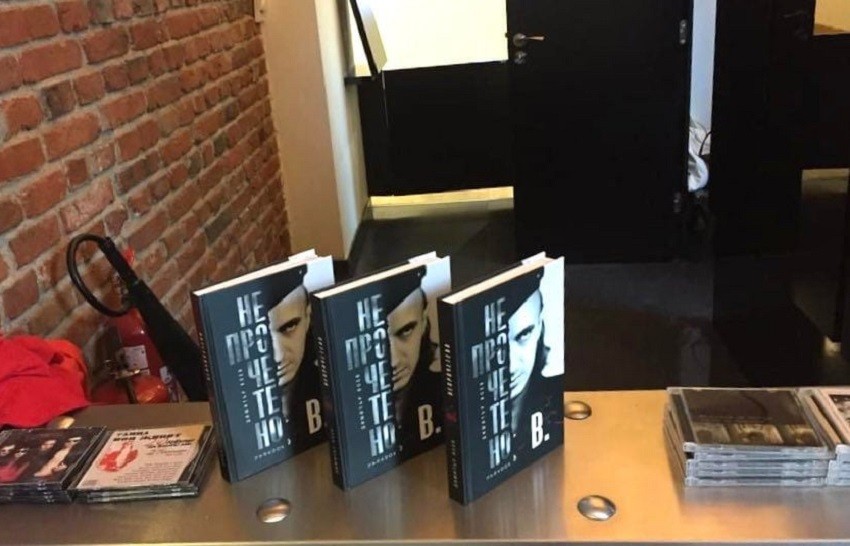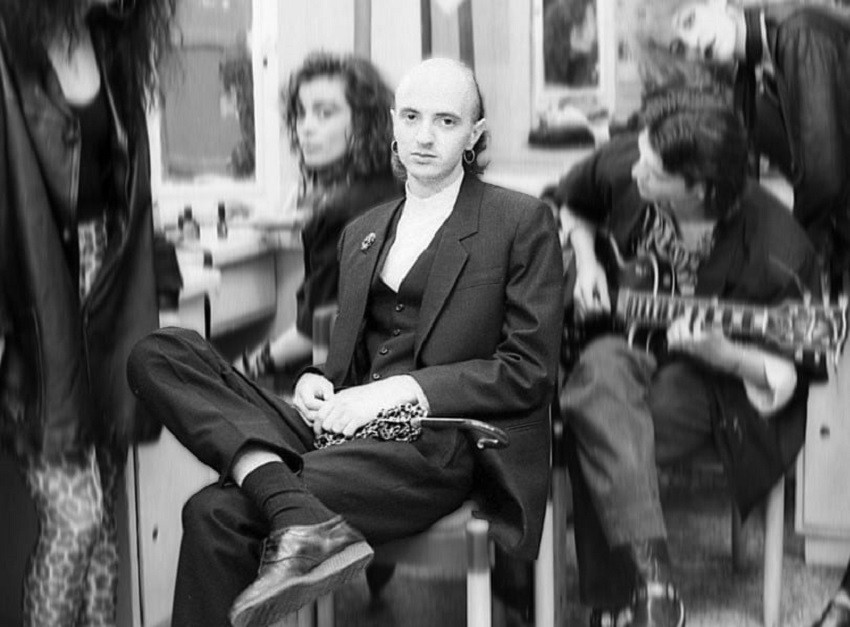Representative of a special kind of people - the non-conformists fighting against uncritical following of group norms, Dimitar Voev is one of the artistic symbols of the Bulgarian transition to democracy. A poet, musician, composer, he was a man ahead of his time, who remained at the age of 27 forever.
Born in 1965 in Sofia, Voev started playing music when he was in school, going through several different bands. In 1985 together with guitarist Vasil Gyurov he founded the first post-punk band in Bulgaria - "Kale". The band had a single big performance in 1987 at the first rock festival in the Summer Theater in Sofia. In the middle of their participation the microphones were turned off because of the band’s lyrics that were innapropriate for the regime's ears and the band were removed from the stage. However, the audience was so impressed that long after the performance was abruptly stopped, they continued to chant the band’s name. In the same year Dimitar Voev formed a new band called "Vhod B", later renamed "New Generation" and becoming the face of cold wave in the Bulgarian music underground.

Dimitar Voev's lyrics became fuel for a whole generation that was dreaming of freedom and change; not only political and social change, but also internal one. The musician welcomed the longed-for democracy, but just two years later, on September 5, 1992, he lost the battle against cancer. However, his art remains forever to recall of the "youth revolt".

Several events in recent weeks have made us talk once again about the brave spirit and legacy of Dimitar Voev. The book “Neprocheteno” (Unread) has been recently published. It includes more than 100 unpublished texts and more than 80 photographs and drawings. They were part of 12 notebooks that belonged to the musician, from the period 1981 to 1992, preserved by his wife Nelly Nedeva-Voeva. Author of the book is Voev’s young daughter Dimitra Voeva, who was born five months after his death.
"This book brings us much closer to Voev's inner world. We know him well as a musician and rebel. It is no coincidence that he is defined as a dissident, as a bright representative of the counterculture in Bulgaria, but we often pay less attention to the intimate side of things that excited him and to the problems that he was not afraid to name and point to in his poetry.”

Dimitra says that her father's revolt was not blindly directed to the country's oppressive political regime before 1989 but was also a reaction against conformism, against the consumer society and the lack of courage and memory. This is something that becomes clear from the documentary film "Voev" by director Bilyana Kirilova and screenwriters Neda Milanova and Valeria Stefanova-Stoykova. The film premiered at the 26th Sofia Film Fest in mid-March. It took six years to shoot "Voev" but the end result is a piece of memory not only about a person, but also about the Bulgarian reality.
"I am a fan of his music. I felt very close to him and thought of him as a supporter, a colleague in the art that I wanted to create and that was the reason why I made this film," screenwriter Bilyana Kirilova has told BNR. It is an interesting fact that the greatest hit of the "Atlas" band - the song "Kukla", is based on a poem by Dimitar Voev that he wrote when he was just 18 years old. Three years ago, the song was included in Bulgarian music textbooks for the seventh grade.

"He is an absolute hero of his time and when I say that, I do not mean only the years in which he lived and worked. He is extremely relevant today. People like him are endangered species, unfortunately, but there is always someone to keep this spark alive," Bilyana Kirilova says.
Meanwhile, the Committee on Culture and Education at the Sofia Municipal Council have unanimously accepted the proposal to name an alley in Sofia’s Borisova Gradina after Dimitar Voev.
Author: Vessela Krasteva / based on interviews by Iva Doichinova, BNR-Radio Sofia and Petar Volgin, BNR "Horizont"/
English: Alexander Markov
Photos: Facebook/voevthemovie, Facebook/FondaciaDimitrVoevNovaGeneraciaSince his appearance on the Bulgarian music scene nearly 20 years ago, rock musician Toma Zdravkov has won us over with his authentic presence. Although dedicated mainly to rock and roll, punk and country sound, Toma has always been..
“Perhaps no other Bulgarian composer’s name is so completely bound to a single work as that of Marin Goleminov,” begins an article by eminent Bulgarian musicologist Venelin Krastev, dedicated to the longest-living representative of the second..
The Boris Hristov House of Culture in Plovdiv hosts the annual Plovdiv Jazz Fest 2025. Starting today until November 9, the forum brings together jazz performers from Bulgaria and the world, offering a diverse program of concerts,..

+359 2 9336 661
